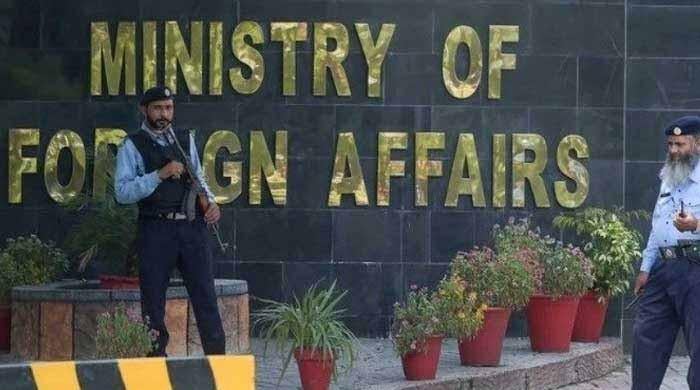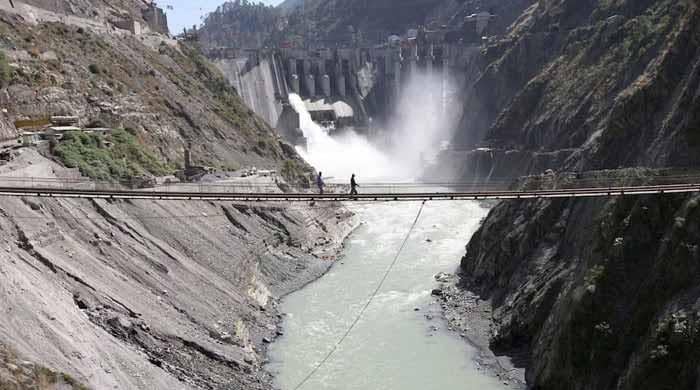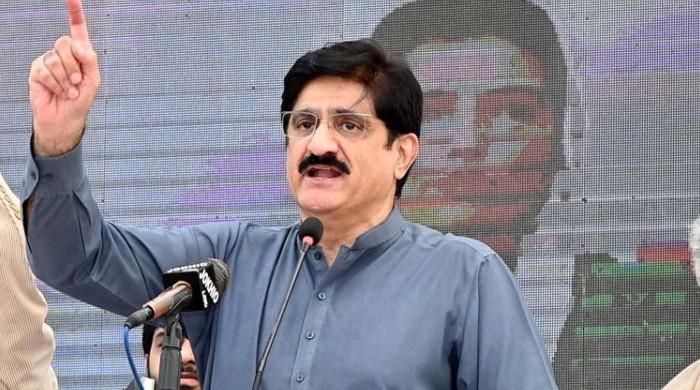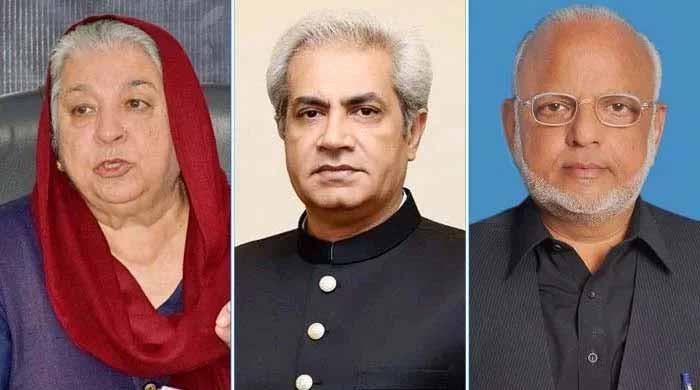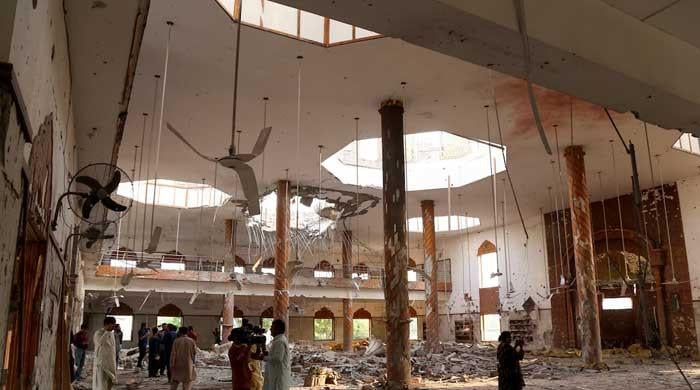'Be patient', PM Imran Khan tells people on resolving Pakistan's problems
PM talks about coronavirus vaccine, issues of Balochistan, GB, Opposition, & the concept of Riyasat-e-Madina
February 01, 2021
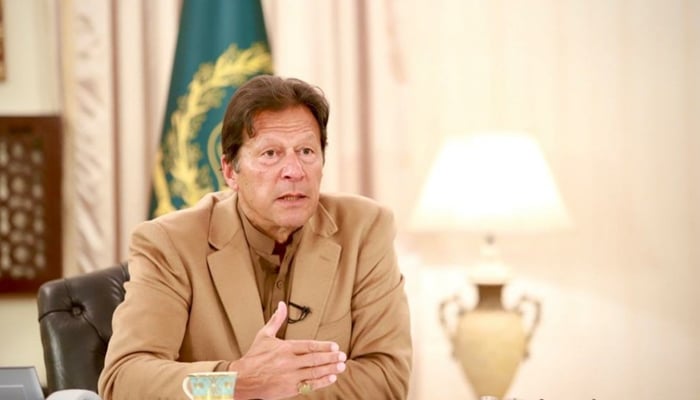
- PM Imran Khan answered citizens' questions via live telephone calls
- Sheds light on various topics, including problems of GB, Balochistan, concept of welfare state, Opposition, inflation, and Senate elections, etc
- Says government is addressing many problems but people have to be patient
ISLAMABAD: Prime Minister Imran Khan on Monday spoke to the masses via telephone and told them to be patient while addressing problems faced by Pakistan.
The calls were broadcast live on television and were moderated by Senator Faisal Javed Khan, the Chairman of the Standing Committee on Information and Broadcasting.
Pakistani citizens called the prime minister and asked questions related to different issues, including the coronavirus vaccine, issues of Balochistan and Gilgit Baltistan, inflation, the Opposition, and the concept of Riyasat-e-Madina, among others.
Coronavirus vaccine
Responding to a question regarding the coronavirus vaccine and the first consignment of the vaccine which has arrived from China today, the premier clarified that frontline healthcare workers will be the first to receive the jabs.
"According to a criterion that the government has set for the vaccination drive, [after frontline workers] we will inoculate people above the age of 60 who might have underlying health conditions," the PM said.
He also assured the masses that the government will not consider a person's socioeconomic status or the difference between the rich and poor when vaccinating them but will only stick to the set criteria for vaccination.
Read more: Pakistan receives first batch of Chinese COVID-19 vaccine
Issues of Gilgit Baltistan, Balochistan
Another citizen called to ask about the development of Gilgit Baltistan, responding to which the premier said that while the region cannot be turned into an industrial hub, it can surely be transformed into a world-class tourist destination, adding that he has spoken to the chief minister of GB regarding tourism therein. The PM also promised to work on power issues that the region is facing.
"We know that Gilgit Baltistan is facing electricity problems and we will soon build grid stations there," the PM said.
Speaking about Balochistan, the PM said that the province is very large with a comparatively small population which makes it difficult to work on its development.
"The political set up of Balochistan which has been historically followed damaged the province," the PM said. "It is crucial to introduce a local bodies system there if we want to address their problems."
PM Khan also added that Balochistan's southern areas lag behind other parts of the province for which the PTI government has introduced development packages.
"We will work on the development of Balochistan but people should be patient," the premier stressed.
Speaking about the developmental projects that the PTI government has initiated in the country, the PM said that no other country in the world provides housing facilities to the masses. Citing the example of the United Kingdom, he said that 80 per cent of the masses take loans from banks in order to construct houses.
As against that, the PM claimed, only 0.2 per cent of Pakistanis seek housing loans from banks.
"The government will provide a subsidy of Rs300,000 per yard for each house under the housing scheme," the PM said.
The promise of Riyasat-e-Madina
Another caller, Ismail Abbasi, asked the prime minister about the eulogisation of the concept of a welfare state — or Riyasat-e-Madina as the PM likes to call it — and asked how would the government ensure the materialisation of the concept.
The caller said that people have started questioning the PM's promise of turning Pakistan into a welfare state because of the injustices taking place in society, like the killing of Usama Satti by Islamabad police.
In response, the PM said that he believes in the concept of Riyasat-e-Madina because it was based on modern-day principles of welfare.
"Every nation that followed the golden principles of Riyasat-e-Madina has succeeded," the PM maintained, adding that whenever he advocated the concept of a welfare state people discouraged him but he did not back down.
"I have envisaged turning Pakistan into Riyasat-e-Madina and I will do so, there is no way to deflect from this goal," he said. "Pakistan will also turn into a great nation."
Read more: In response to SC, Sindh rejects holding Senate elections via open ballot
Corruption, rule of law, and economy
Answering another question, the prime minister said that the country will only progress towards prosperity when rule of law will be strengthened.
"Giving the National Reconciliation Ordinance (NRO) to the powerful and throwing the poor in jails will only destroy the country," the PM said.
Speaking about the Opposition, PM Imran Khan said that "the biggest looters of the country came together and formed a union and these looters have been trying to pressurise the government for the past two years."
He added that former president General Pervez Musharraf gave the NRO to the biggest looters during his tenure.
"The corrupt rulers of the country stole people's money and laundered it abroad," he said, adding that by bringing up the foreign funding case against the ruling PTI, the Opposition has put itself in a troublesome situation.
"We have provided names of 40,000 donors to the Election Commission of Pakistan in relation to the foreign funding case but the Opposition parties cannot even name one hundred donors."
Citing the example of Malaysia, the PM said that the country also witnessed the rise of "PDM-like" alliances which pushed the country into debts.
"The country has been pushed into crises during the decade-long rule of the PML-N and PPP combined," the PM said, adding that people expected the PTI government to come into power and change everything overnight which is only possible in fairytales.
"It takes time to fix the problems of the country," he stressed.
Prime Minister also talked about inflation and said that he is fully aware of the masses' plight.
"The country has been plunged into poverty because of corrupt presidents and prime ministers in the past," he said. "[Owing to flawed policies of the previous governments] the Pakistani rupee severely depreciated which led to inflation in the country."
The PM added that when he formed a government, Pakistan was going through the darkest economic period in history.
"We are trying to improve the country's economy but people have to be patient," he said.
Senate elections
Responding to a question about the Senate elections, the PM said that "MNAs sell their votes in the Senate elections," and many people become senators by giving bribe. "
"Those who became senators by bribing others come to power to make money," he said. "The PPP and PML-N said in the Charter of Democracy that there should be an open ballot system in the elections," he said.
"We will be introducing an amendment in the Senate elections this week for an open ballot system of voting," the PM said. "The nation will see who supports the open ballot system and who opposes it."
Plight of state institutions
Taking a jibe at the previous government, the PM said corruption coupled with politically-influenced appointments in state institutions led to their destruction.
Answering a question about the plight of the Pakistan International Airlines (PIA), the PM said that PIA is indebted with a loan of Rs400 billion because of which it also has to pay interest.
"We do not have the resources to purchase more aircraft for the national carrier," Imran Khan said, adding that the government is currently restricting the PIA as more people have been recruited by it than needed.
The PM also said that his government is trying it best to pay off the debts incurred by the PIA, adding that the pandemic severely affected the airline industry because of which PIA faced considerable losses.
Read more: PDM poses no danger to the government, says PM Imran Khan





